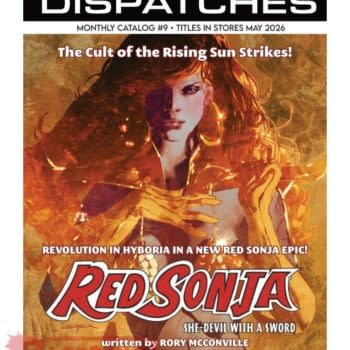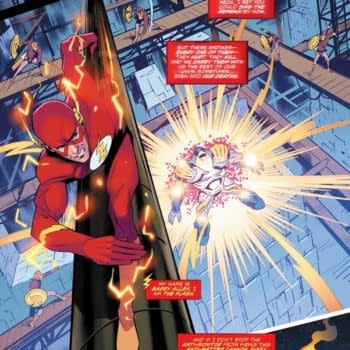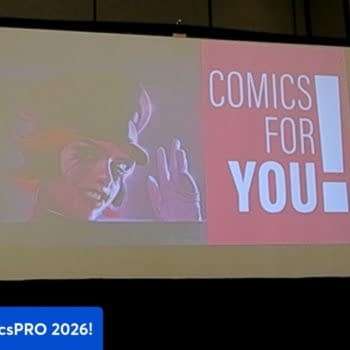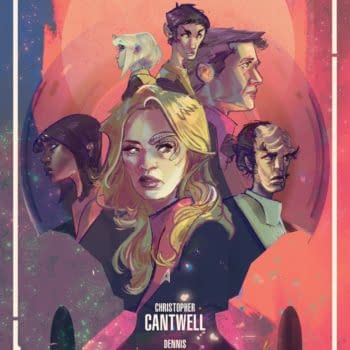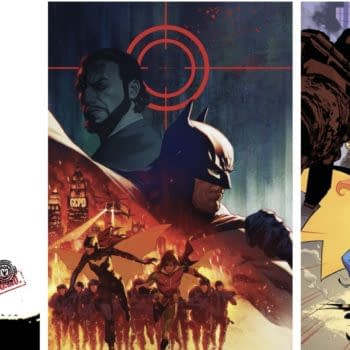Posted in: Comics, Recent Updates | Tagged: Comics, drawn & quarterly, entertainment, Mimi Pond, Over Easy
Mimi Pond's Over Easy From Drawn & Quarterly Serenades The 70's
By Ed Saul
"I had desperately wanted to be a hippie, but now I could see that ship had sailed."
So says Mimi Pond in a beautifully-arranged panel of Over Easy, her comic memoir, while discussing the dawn of that most confusing and terrifying era of Western civilization – the 1970's. It seems almost as if the transition from '69 to '70 alone was enough to have the children of peace and love cropping their hair, throwing out their tie-dyes in favor of black t-shirts and thrashing violently to Ian Dury and the Blockheads. It wasn't just them, though; this was the decade of Disco as well as Punk, die-hard Hippies as well as permed Yuppies, coffee shops as well as art colleges. And Mimi Pond saw them all.
Who is Mimi Pond, you may ask. I'm not surprised you have to; in spite of becoming a bestselling author and writing the first full-length episode of The Simpsons, which also bore of its greatest titles – "Simpsons Roasting on an Open Fire" – she's kept herself under the radar for the 15 years since, raising her children and creating Over Easy. |t is a sad trend across human history for female achievers to be shoved aside by history in favour of their white male contemporaries, and that is as prevalent in the world of comics and animation as anywhere else.
Pond is all-too-familiar with invisibility, and demonstrates it well in her draughtsmanship, reducing herself to a dashed-line silhouette amongst the clashing personalities of paranoid cooks, foul-tempered waitresses and fouler customers. Her beautiful color washes and distinctive linework feel reminiscent of Alison Bechdel or Jeffrey Brown. In a lot of the more dynamic panels, you can detect a rich visual language built up over a decade and a half of solid work.
Identity is the theme which Pond plays with most prevalently. The hippies of times past all take on their own, the waitresses "can go from maternal, to deadpan, to dangerous in a split second", and a seemingly stoic and uncaring young arts major named Joe can become "a real sensualist" in the bedroom. The fact that the story begins with Mimi being handed the new name 'Madge' is the cherry on the cake – this is a story set in a time when everyone was doing their best to figure out who they were.
In a very "Catcher in the Rye" way, the people that 'Madge' meets and interacts with while working in the Imperial diner are foils for her own search for self-identity and happiness; by a happy coincidence, her unfortunate dalliance with Joe is contrasted immediately by her co-worker Martha's weekend marriage to Sammy, one of the Imperial's cooks. Dating doesn't bring Mimi happiness, and getting married doesn't help Martha that much either; but at least they can get a drink together afterwards and talk about "how rotten men are".
Everything is an opportunity for reinvention: your career, your love life, the influence of the people around you. Especially when the people around you are reinventing themselves at the same time. If anything seems to have remained consistent in all the time between when these events and when they were published, it's that Pond has never stopped drawing; at one point, when introducing her to a creepy associate named Turkish Otto, her boss Lazlo tells him "Watch out! She's a cartoonist and she doesn't miss a trick!".
Indeed, her position as the nigh-invisible 'Madge' seems to have given her a unique perspective, capturing these disparate personalities in the midst of their development, freezing them on her page for ages afterward. She is like a Jane Goodall of volatile 70's personalities, becoming adept at spotting fellow waitress Helen's boyfriends of past, present and future. In a beautifully-choreographed sequence, Lazlo becomes a silhouette cast across his walk home across Oakland, like a lone elephant photographed in the dawn.
In an age when every damned trend in fashion can become a whole new group-identity or become absorbed into the gargantuan archetype that everyone seems to call "hipster" without quite knowing why, it's refreshing to have a window back into the 1970's, where these boundaries seemed at once well-defined and yet negotiable and vague. As Lazlo himself says, outlining his own plans for a story about the Imperial "What I should do is stop and make an outline. But how do you outline chaos?".
The answer: by looking back on it, years later, when it seems to be so much calmer…
Who are you? Who, who, who who? I really wanna know. Who are you? Who, who, who, who? Tell Ed Saul, 'cause I really wanna know, at http://aboxofbones.com.

















